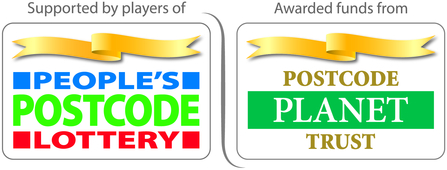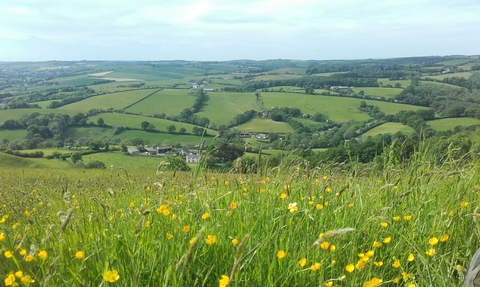
Wilder Woodah
Creating an inspiring demonstration centre for nature-based solutions
In 2009, Devon Wildlife Trust (DWT) took ownership Woodah Farm, a 57 hectare farm near Doddiscombleigh, which was cattle and sheep grazed with little space for wildlife to thrive. Since DWT acquired Woodah, it has been put out to cattle grazing by local farmers, restoring several areas for nature, alongside managing the site as a working farm.
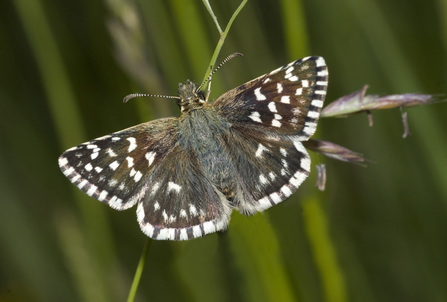
Chris Root
About the project
Woodah Farm has been chosen as one of 12 new projects taking place across England, helping the UK achieve its ambition of reaching net zero carbon emissions by 2050, supported by a grant from People’s Postcode Lottery. The Wilder Woodah project will see large areas of the farm returned to ‘natural processes’ to allow its soils to recover and nature to thrive.
The farm is typical of many lowland beef and sheep systems, so this site can also help to inform learning around natural solutions to storing carbon and combatting climate change that can benefit other similar sites.
A dynamic and diverse mixture of woodlands, scrub, meadows and wetlands will naturally regenerate and flourish across the farm...Woodah Farm will be a test bed to reveal techniques to tackle both the climate and biodiversity crisis in Devon’s farmland.Devon Wildlife Trust
Supporting nature’s recovery and increasing resilience to climate change
Whilst there has been some nature recovery at Woodah since DWT took on the site, this project will see a more radical approach that will work with and catalyse natural processes, trialling different techniques on different parts of the site. Here are just a few examples…
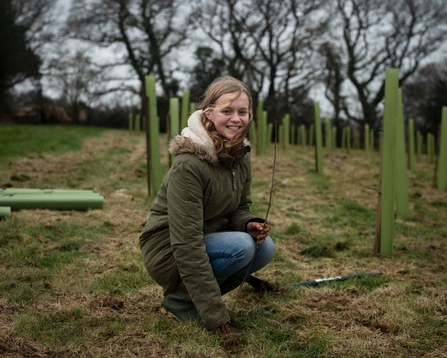
Tree planting and protection
Trees are fantastic habitats for wildlife and help absorb carbon from the atmosphere. Some areas of the site have excluded cattle over a number of years, but have seen very little scrub development due to the number of deer. A range of woody species will be planted within enclosures, to give nature a helping hand. Fencing will be installed in key areas to exclude intensive deer grazing and the fencing will be removed once the trees are established.
Creating a mosaic of habitats
Allowing plants, animals, seeds, nutrients and water to move between natural spaces enables our environment to adapt to change. By removing fencing in some fields at Woodah, the barriers between woodland and pasture will be softened, enabling species to move between them easier.
Woodah Farm also borders Scanniclift Copse, an 8 hectare DWT reserve of closed canopy woodland, which will be thinned to create forest glades, stimulating the development of a rich diversity of flora on the ground. Over time, we hope to see natural change to the woodland ecology and more rapid spread of woodland species into the pastures.
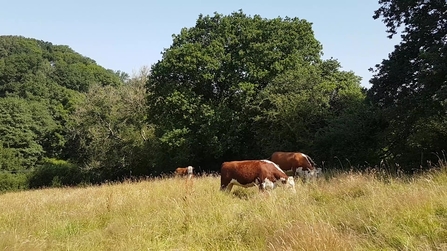
Livestock grazing
Livestock can have a range of benefits in managing a grassland, including suppressing dominant grasses so wildflowers have a chance to thrive. However, these animals also contribute to climate change through producing methane, which contributes to the greenhouse gasses in the atmosphere. This project will look at excluding livestock entirely from some areas, and introduce other species such as ponies to vary the types of grazing and lower carbon emissions (cattle have much higher emissions per grazing unit).
To maximise the use of natural resources to sustain the livestock on the farm, the water supply to the troughs will be gravity fed from a pond. This will allow the remaining water troughs to be taken off the mains supply, reducing the energy use on the farm.
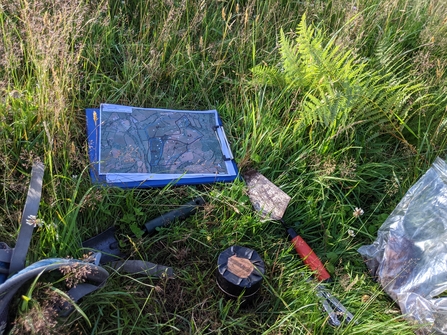
Alan Puttock, University of Exeter
Species survey
To better understand the project's impacts on soil health, the University of Exeter will be monitoring changes on the site. Experts from the University will look at change in vegetation cover and type, in soil structure and carbon, in earthworm numbers and in levels of key nutrients including nitrogen, phosphorous and potassium.
Meanwhile, volunteers led by staff from Devon Biodiversity Records Centre have been trained to conduct a series of wildlife surveys to track the impact for nature of changes to the farm’s management. This includes botanical quadrat surveys, butterfly transects, moth trapping and dormouse surveying. Some of the positive shifts we hope to see include increasing numbers of rare insects including brown hairstreak and grizzled skipper butterflies, plus more visits by endangered greater horseshoe bats. More than 130 hours from 18 volunteers have already been dedicated to the project!
Community engagement
DWT wants to celebrate nature-based solutions to the climate and nature crises and inspire communities and landowners to support nature's recovery. During the project, a family friendly event will be held so People's Postcode Lottery players and others can engage with the wildlife on the site. This event will be held during the Devon schools October Half Term 2021 which will be featured on our what’s on page.
Following this project, DWT will promote Woodah Farm as a centre for learning about nature-based solutions. Landowners, decision-makers and other interested parties within Devon and beyond will have the opportunity to find out how these sustainable practices can be utilised in their own areas.
